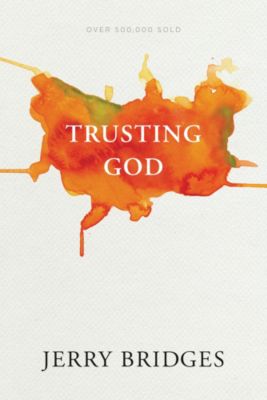
Each day in the life of a pastor, he is forced to trust God in the same way he exhorts the body of Christ he shepherds.
By Erik Reed
The “ding” on your computer alerts you that a new email has hit your inbox. “Can we meet?” is the subject line that greets you. Your heart immediately sinks, and you feel the anxiety wash over you as you begin to wonder what this meeting could possibly be about.
You take mental inventory of what their meeting request may center around. “Is it something I preached about?” “Are they not happy about the direction of the church?” “Did something happen in kids or student ministry?”
You rack your brain, but nothing you can think of gives you any assurance you know the purpose of the meeting. The message doesn’t say what this family wants to meet for, cluing you in that it isn’t a “good” meeting. Dread plagues your thoughts and heart. It’s going to be “that kind of week.”
The exhortation to “trust God” is one we, as pastors, must give to our own hearts each day. In our preparation and delivery of sermons we pray transform lives, we can’t rely on our cleverness, intelligence, or rhetorical prowess. On the contrary, we trust God.
As we lead staff members, elders and deacons, and volunteers to meet the physical, emotional, and spiritual needs of the church, we trust God. When we attempt to initiate new ministries, build new buildings, or raise money for needs, we have to trust God. When a crisis erupts within the body, and we fear its effects on the church, we trust God.
Troubles in life and ministry are not uncommon, in fact, it should be considered the norm. We have challenges in our own families. Bills are due. Children need procedures. Keeping scheduled date nights with our wives can be a struggle. Then there are church issues. People pull for our time. We field complaints about building usage. We meet with couples whose marriages are on the brink of disaster.
There are constant demands and strains due to shortages of both personnel and finances. Troubles are not uncommon, but what is uncommon is people who manage those troubles with unwavering trust in God. This is especially true for pastors. Each day in the life of a pastor, he is forced to trust God in the same way he exhorts the body of Christ he shepherds.
Nurturing trust
Trusting God is not something we can turn on and off like a light switch. It’s nurtured. We must cultivate it daily through constant, close communion with Him. I wish I could say it’s only unbelievers who don’t trust God. However, in my experience, believers also struggle with trusting God. It’s also not uncommon for pastors. We need to trust God just as much as we are urging others to trust God.
Trusting God is not something we can turn on and off like a light switch. It’s nurtured. We must cultivate it daily through constant, close communion with Him. — @ErikReed Click To TweetIt is often an easy prescription for us to counsel others to “trust God” as they share with us their difficulties and trials. However, what does that actually look like? The counsel isn’t wrong, but how to live it often remains undefined.
In Proverbs 3:5-6, the writer tells us, “Trust in the LORD with all your heart, and do not rely on your own understanding; in all your ways know him, and he will make your paths straight” (CSB). This is a familiar passage to us. However, the question is not do we believe this passage or know it, but rather, do we grasp how it instructs us in trusting God?
The first instruction is “trust in the LORD.” Trust YHWH. It follows that it’s something done with all your heart. Trust is a verb that means “to place full confidence or reliance on.” The image of the Hebrew verb (bə·ṭaḥ) is of one lying face down on the ground with their back exposed. Why is that an image associated with trust? Because you are vulnerable to whoever is around you. You are unprotected. You are placing full confidence and reliance on the people around you to not attack or harm you. You trust them.
We’re instructed as pastors to trust God with our whole hearts, fully relying on and putting confidence in Him—nothing withheld. Every fiber of our being should trust and rely on Him. This type of dependence not only glorifies the LORD, but it also becomes our source of help, strength, and peace in the midst of the turmoil of life.
Giving up self-reliance
The opposite is contrasted in the text. We’re told to “not rely on your own understanding.” This is the hardest part of the exhortation. As pastors, we’re often the leaders people look to for answers. In nearly every aspect of the church, we’re the ones whose understanding is sought after. Yet, we’re told in these verses that in trusting God, we must reject the temptation to rely on our own understanding.
There are many examples of how the flesh will tempt us to “rely on our own understanding”—whether leaning on our false perception of control, our desire to lean on the world’s understanding, or even leaning on complacency. But one of the most destructive temptations is storytelling—devising “worst-case scenarios” before they’ve even played out. We must reject our tendency to lean on our understanding in the form of storytelling.
Every human is a storyteller. While under the stress of a particular trial, we’ll often concoct horror stories in our minds about all the bad things that are going to happen. We imagine scenarios that haven’t happened and calculate the damage that will ensue from them. Pastors, we do this too.
As you trust Him in your personal life, it strengthens your preaching and counseling, because you can graciously tell people to trust in the LORD with all their hearts just as you’re learning to do each day. — @ErikReed Click To TweetMany pastors imagine if they don’t see “results” they’ll be run out of town, forcing them to pick up their families and start over. These stories don’t just remain in our heads. They affect our hearts. Worry, fear, anxiety, and depression often mark the hearts and lives of pastors because we slowly drift toward leaning on our own understanding concerning our ministries. We don’t fully trust God.
Knowing God
We must, in all our ways, know Him. The first task of the pastor is to prioritize personal communion with the LORD. That’s where trust is cultivated. We foster trust in God when we spend time with Him. When we do this, and we study His Word for the purpose of fellowship with Him, we find trust nurtured in our hearts.
As we recognize God’s sovereignty, wisdom, love, goodness, faithfulness, and other attributes, we see trust blossoming in our hearts. We discover our God can be trusted with every aspect of our lives and ministries. We acknowledge He is sovereign over every detail of every circumstance and nothing is left to chance. There’s nothing that comes into our lives that doesn’t first go past the counsel of His will (Ephesians 1:11).
The life of pastoral ministry is filled with ups and downs. People will malign you, disappoint you, and turn their backs on you after you’ve helped them. There may be struggles in your marriage, a child struggling with health issues, or personal loneliness. In those moments, you trust in the goodness and plan of God.
As you trust Him in your personal life, it strengthens your preaching and counseling, because you can graciously tell people to trust in the LORD with all their hearts just as you’re learning to do each day.

Erik Reed
Erik Reed is the lead pastor of The Journey Church in Lebanon, TN. He also founded Knowing Jesus Ministries, a non-profit organization that exists to proclaim timeless truth for everyday life. He is married to Katrina and has three children: Kaleb (who went to be with the Lord), Kaleigh Grace, and Kyra Piper. Click here to sign up for Erik’s pastor and ministry leader newsletter.












